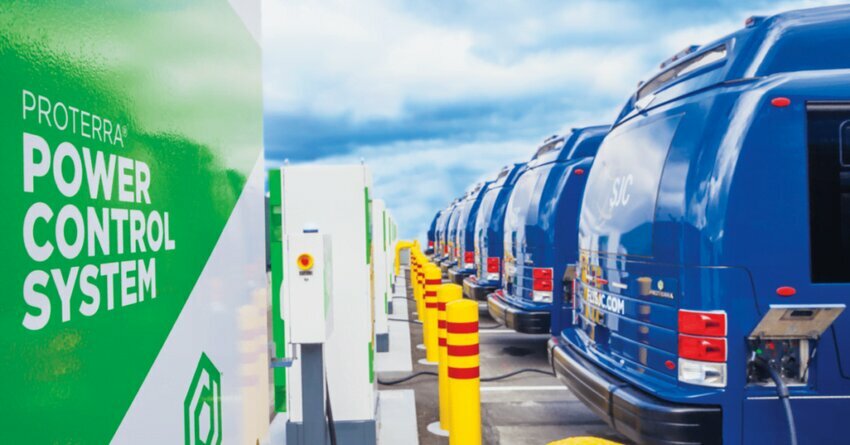 (Credit: Proterra)
(Credit: Proterra)The Connecticut Green Bank and its partners have secured carbon credit capital funding to accelerate the deployment of EV charging systems across the United States. Acting as an aggregator and facilitator, the Green Bank has opened access to patient capital that will help ensure the future viability of these charging networks. The project uses an independent third-party certification methodology for EV charging systems and has resulted in the issuance of carbon credits by Verra’s Verified Carbon Standard (VCS) Program. The carbon credit proceeds are generated by the Green Bank’s project partners, including large-scale utilities, small fast-growing charging networks, and telemetric-based start-ups, to strengthen the provision of their EV charging services.
The issuance of these EV-charging carbon credits represents the Green Bank’s first entry into the carbon markets. The environmental benefits of these credits are equivalent to removing 5,278 tons of carbon dioxide from the atmosphere, not burning 538,778 gallons of gas, or the carbon sequestered by 5,666 acres of U.S. forests for one year. The transportation sector accounted for the largest portion (27%) of total US GHG emissions in 2020, according to the Inventory of US Greenhouse Gas Emissions and Sinks 1990–2020. Efforts to create greater access to more efficient forms of transportation will decrease the sector’s environmental impact.
Carbon credits incentivize activities that lower carbon emissions, such as charging and driving electric vehicles. These credits accelerate the deployment of EV charging services to help communities more rapidly achieve their low-carbon transportation goals. As credits are sold, this transaction secures funding from the private carbon capital markets to help accelerate mission-critical low-carbon technology deployment. EV charging carbon credits represent an innovative way to help accelerate the shift to electric transportation using private sector funds rather than public resources.
The Green Bank’s project partners include Volta, U-Go Stations, Proterra, and the EV Structure Company. Consortium partners have expanded to now include Dominion Energy, Exelon, Optiwatt, EV Match, BLINK, AmpUp, and OpConnect. Together, these partners already have 725 EV charging stations across the United States enrolled with the project. The project is now poised to expand dramatically in size and geographic scope. The success of this public-private partnership model designed to ensure the vibrancy of the carbon market as applied to e-transportation creates low-fee access to such capital for smaller EV charging partners. The Green Bank expects to leverage carbon markets to unlock added revenue streams for themselves and their partners, opening doors for both clean energy and environmental infrastructure.
“With nearly 59,000 chargers deployed across 25 countries, Blink has the opportunity to have a meaningful impact on our environment and reduce the carbon credit footprint of the drivers that use our chargers around the world by participating in programs such as Connecticut Green Bank,” said Juan Barahona, U.S. and Global Director of Operations at Blink Charging. “With our advanced, industry-leading equipment and robust network of public charging stations, we continue to develop the charging infrastructure required to meet the growing needs of EV drivers.”